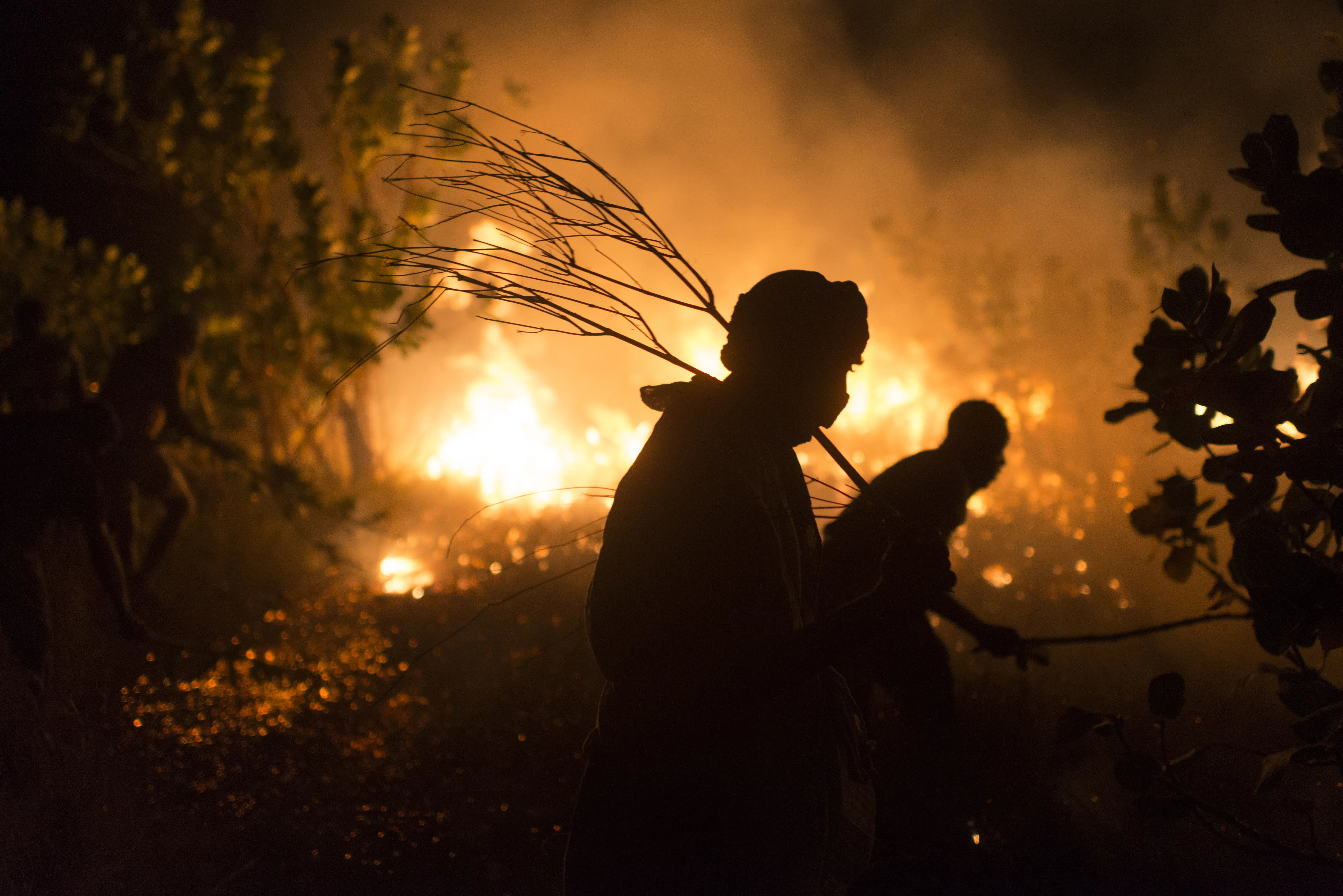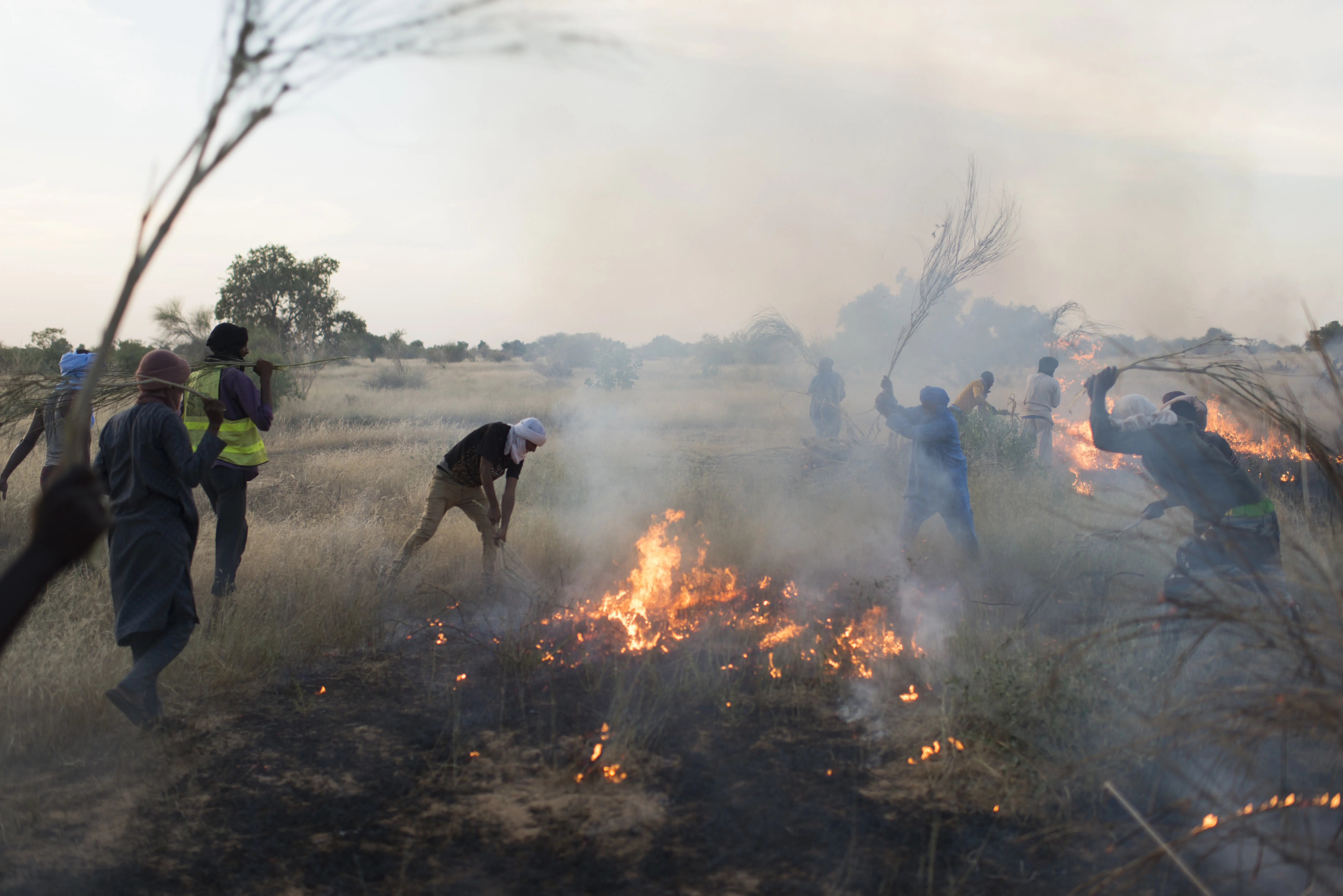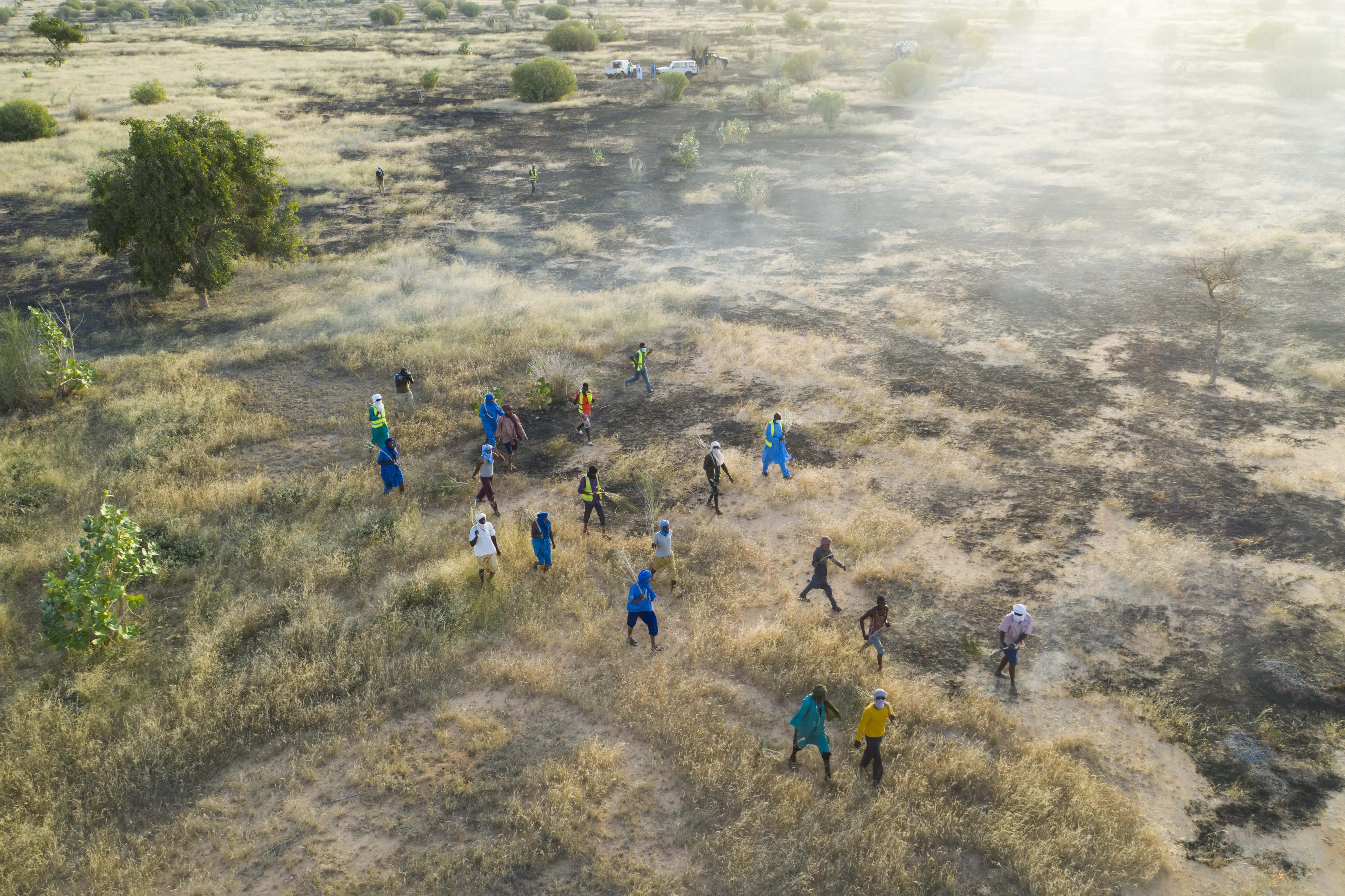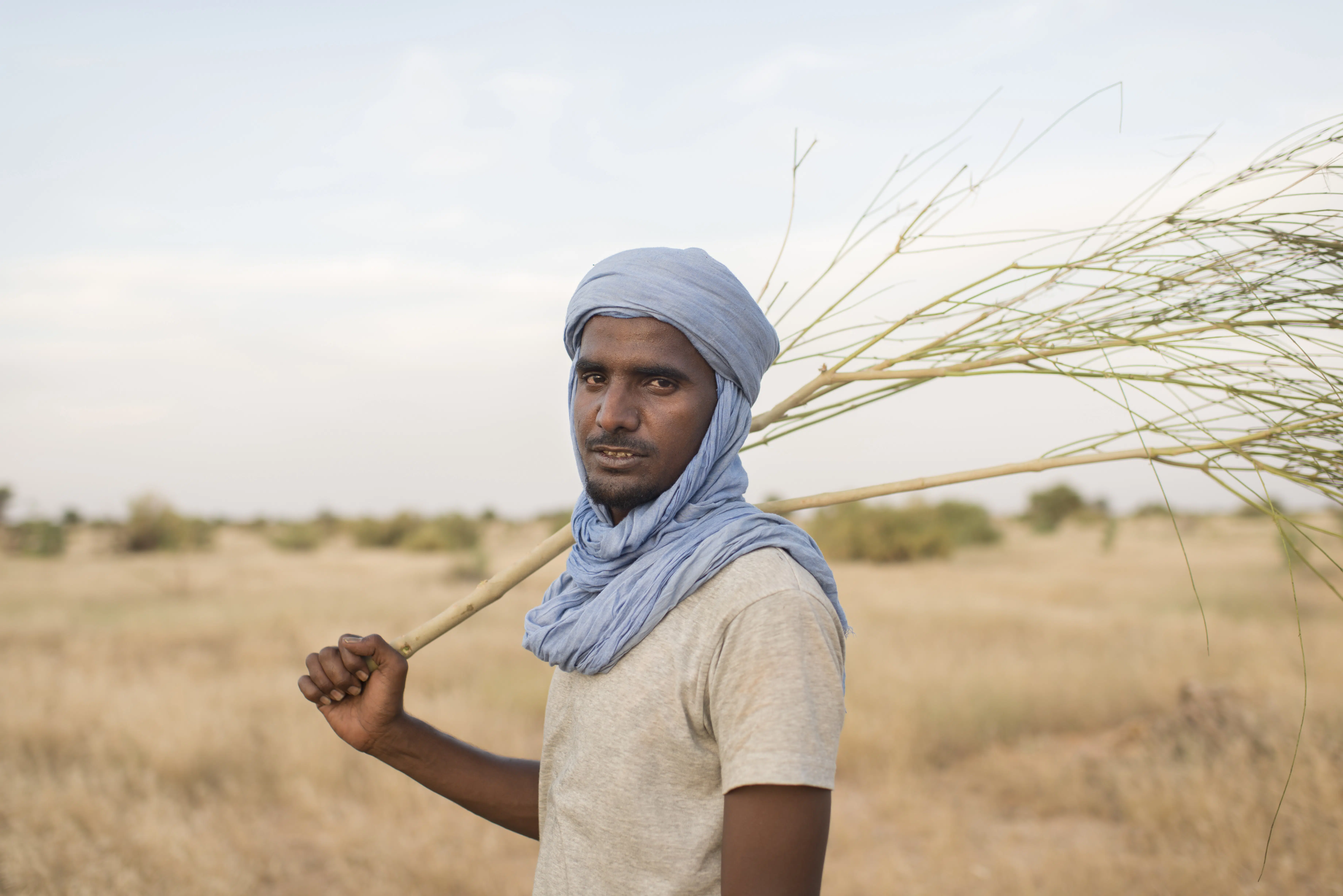UNTOLD Stories: Climate Change

Members of the Refugee Fire Brigade use branches to beat out a large bush fire near the Mauritanian border with Mali. Since 2020, a group of Malian refugee volunteers are waging a fight against bush fires around Mbera camp.
UNtold Stories: Climate Change
Donate TodayMembers of the Refugee Fire Brigade use branches to beat out a large bush fire near the Mauritanian border with Mali. Since 2020, a group of Malian refugee volunteers are waging a fight against bush fires around Mbera camp.

The climate crisis is no longer a distant threat. It’s happening right now, and those forced to flee from conflict are being hit the hardest. More than 20 million people leave their homes every year because of climate issues, including abnormally heavy rainfall, prolonged droughts, desertification and rising sea levels.
Disasters like droughts, flooding, landslides and wildfires are destroying livelihoods and disrupting food security. Families are being separated, communities are being destroyed and millions of lives are at risk.
The Sahel, a vast semi-arid region in Africa that includes the countries of Burkina Faso, Mali, Mauritania and Niger is seeing huge levels of climate related displacement.

Climate Change is one cause of displacement in the Sahel. Changes in rainfall patterns and frequency of drought and floods – all products of the extreme temperatures – are threatening livelihoods and exacerbating food insecurity in the Sahel region. This, in turn, leads to fighting over scarce resources. Intense indiscriminate violence has forced millions to flee across the region, both within countries and across borders. This is a humanitarian crisis.
The central Sahel experiences temperature increases that are 1.5 times higher than the global average

Spotlight on Mauritania
Mauritania, a country in the north east of Africa and part of the vast Sahel region, is one country seeing alarming displacement related to climate change. So far, in 2022, five tropical storms and cyclones have battered the northern coastal regions of Mauritania including Tropical Cyclone Gombe which affected more than 736,000 people. The frequency of wildfires has increased at an alarming rate, posing a serious threat to the dwindling grass and tree cover.
Refugees fight fires to preserve Mauritania’s environment
As the vehicles approach the source of the smoke – a huge bushfire – the men jump out of the trucks. Armed with no more than tree branches, they attack the fire, yelling inaudibly and moving in unison. Within minutes, the fire is extinguished, leaving behind a charred area about two kilometres long and three kilometres wide.
At the centre of the action is 52-year-old Ahmedou El-Bokhary, a Malian refugee and the leader of this voluntary fire brigade.
“This is the third fire we have put out in 24 hours,” he says as he wipes sweat from his eyes.
As the climate here has become hotter, the frequency of wildfires has increased at an alarming rate.
2.6 million people are internally displaced in the Sahel region.
There are over 930,000 refugees and asylum seekers in the region.

Malian refugee Ali Ag Azima, is a member of the volunteer Refugee Fire Brigade which battles bush fires in the area around Mbera camp in Mauritania. The volunteers take turns with the exhausting work of extinguishing the fires that occur almost every 48 hours during the dry season.
What can be done?
With your support, the UN Refugee Agency is supporting people in the Sahel region to protect their way of life. Local communities cannot support an ongoing influx of displaced people. UNHCR is providing core relief items and protection services for those who have been displaced.
We are also assisting communities with initiatives that combat climate change – planting trees, for example, can help prevent landslides in flood-affected areas or help combat desertification where there is drought. We are introducing people to new cultivation techniques that enable them to save water and get the best yield from dwindling supplies.
There is hope but in the Sahel region there is an acute humanitarian crisis and more aid is desperately needed.


